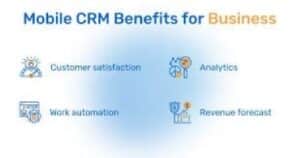In today’s competitive business landscape, Customer Relationship Management (CRM) systems have become essential tools for organizations aiming to scale while maintaining high-quality customer relationships. As CRM technology continues to evolve, it increasingly adapts to the dynamic needs of various industries, including construction. Understanding current CRM trends for construction in 2024, such as AI, data privacy, omni-channel, mobile CRM, and customizable solutions, is crucial for companies looking to stay ahead of market changes. By aligning with these trends, organizations can leverage features that enhance customer communication, streamline operations, and deliver personalized experiences at scale. In 2024, several key trends are set to redefine the CRM landscape, with AI-powered CRM taking the forefront.
1. AI-Powered CRM Trend for construction in 2024
CRM systems are rapidly advancing due to the integration of artificial intelligence (AI), significantly enhancing their capabilities. For construction businesses, AI can be a game-changer. AI-driven tools enable builders and contractors to communicate their value propositions clearly across multiple languages, ensuring consistency in customer experiences regardless of language barriers. For instance, AI can automatically translate contractual documents into various languages, increasing customer satisfaction in multilingual environments.
AI also supports compliance with evolving regulations, such as GDPR (General Data Protection Regulation) and CCPA (California Consumer Privacy Act), by generating regulatory documentation and ensuring legal standards are met before submission to legal teams. Additionally, AI’s ability to summarize lengthy contracts can be invaluable for busy construction company owners who need to quickly grasp the key points and potential risks in agreements. By integrating these AI-driven practices, CRM trend systems for construction companies will enhance customer engagement and streamline operations, setting a new standard for the industry in 2024 and beyond.

2. Enhanced Data Privacy and Security in CRM Systems
With the increasing number of data breaches and growing concerns over data privacy, the need for robust data security in CRM systems has never been more critical. For construction businesses, where sensitive project information and client data are at stake, secure CRM systems are paramount. In 2024, the ability to quickly retrieve data and switch between CRM systems will become a crucial factor for builders looking to maintain flexibility and control over their operations.
Modern CRM systems now offer features like end-to-end encryption, multi-factor authentication, and real-time security checks, especially when accessing data from locations outside the service area. These measures not only protect customer information but also build trust between the CRM consulting company and its clients. As regulations such as GDPR and CCPA become stricter, construction businesses must prioritize CRM solutions that guarantee data privacy and security, ensuring long-term customer trust and compliance with legal standards.

Secure CRM systems are paramount
3. Omni-channel CRM
Omni-channel CRM is revolutionizing the way companies interact with customers, and in 2024, having a unified presence across all channels—whether social media, email, phone, or physical stores—will be crucial. For construction businesses, where client interactions can occur across various platforms, Omni-channel CRM systems provide an integrated approach that allows for real-time monitoring of customer interactions. This capability enables companies to deliver personalized messages tailored to each platform, enhancing the overall customer experience.
By leveraging Omni-channel CRM, builders and contractors can offer a seamless and engaging buying experience, ultimately driving higher customer loyalty. This comprehensive view of the customer journey is especially valuable for CRM consulting services in the construction industry, as it allows for more effective management of client relationships and project timelines, contributing to a more efficient and customer-focused business strategy.
4. Mobile CRM in 2024: A Must for Construction Professionals
As the global workforce becomes increasingly mobile, CRM systems must provide seamless support for on-the-go professionals. For construction businesses, where project managers and field agents often work remotely, mobile CRM solutions are essential. In 2024, the ability to offer instant quotes, manage sales records, and address customer inquiries in real-time will set successful construction companies apart from the competition.
Mobile CRM apps, now designed to match the functionality of desktop applications, allow employees to update customer data, manage project details, and collaborate with clients directly from their mobile devices. Companies like JobNimbus, known for their CRM strategy for roofing businesses, have shown that text engagement is significantly higher than traditional methods like email. This flexibility not only boosts productivity but also ensures that construction companies can promptly meet client needs, regardless of location, leading to greater customer satisfaction and business growth.

Benefits of Mobile CRM in business
5. Customizable and Scalable CRM Solutions for Construction in 2024
One-size-fits-all CRM solutions used to be the desired outcome, as software companies tried to spread their offerings, they were quickly outpaced by small startups that did one function particularly well. PandaDocs quoting and immediate e-signature retrieval is an example of how companies, such as JobNimbus have adapted, concentrating on their core scalable business model while offering the benefit of plug and play integrations .
Conclusion
As we move into 2024, the CRM landscape will be shaped by advancements in AI, enhanced data privacy, Omni-channel integration, mobile accessibility, and customizable solutions. For construction businesses, staying ahead of these trends is essential for maintaining a competitive edge and delivering exceptional customer experiences. By embracing these developments, organizations can ensure their CRM systems not only meet current needs but also adapt to future challenges, driving long-term success in an increasingly dynamic market.

